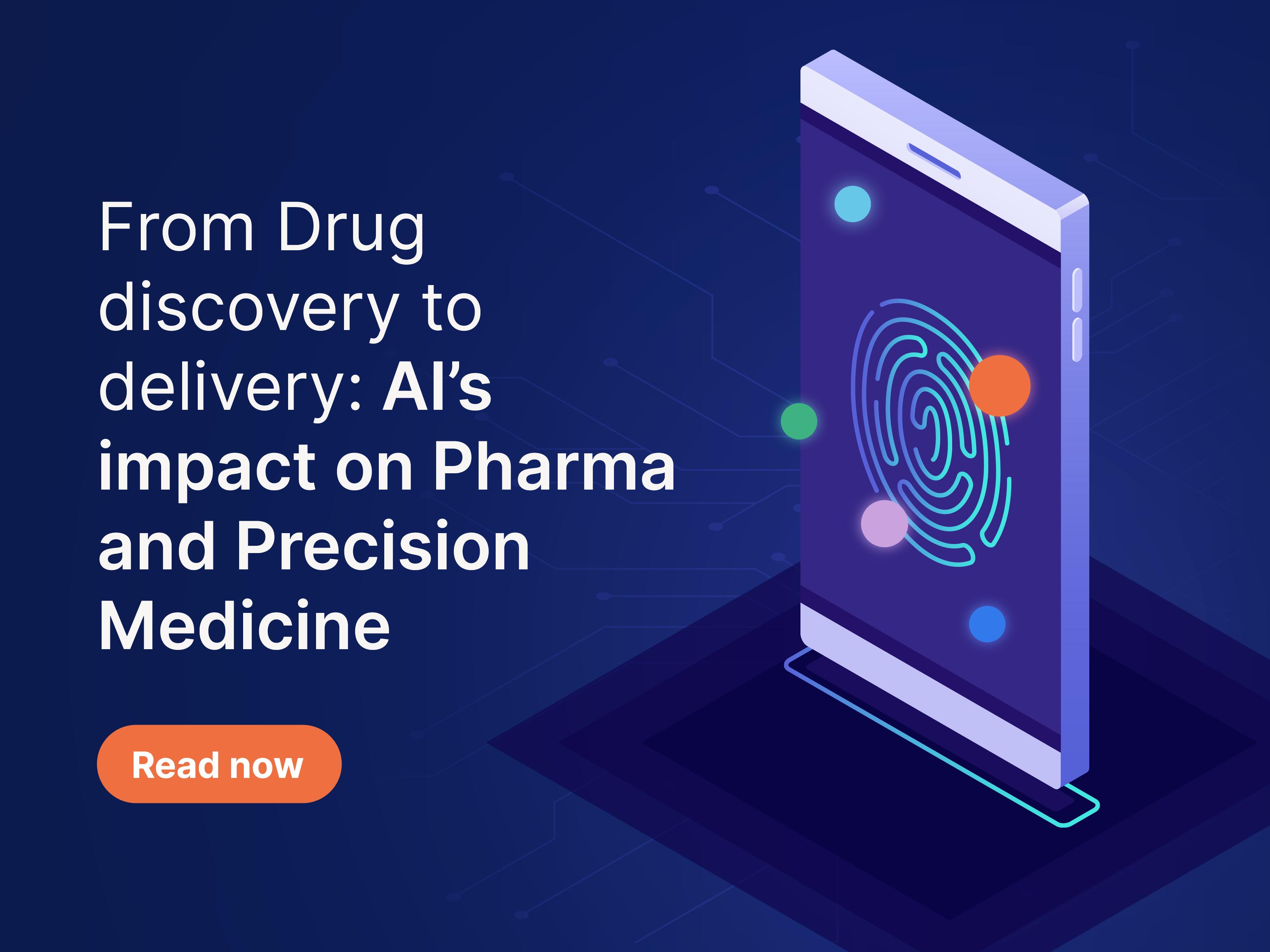From drug discovery to delivery: AI's impact on pharma and precision medicine
Key takeaways
- The impressive potential of Artificial Intelligence (AI) is impacting the pharmaceutical industry at different levels: drug discovery and development, clinical research and commercialization,
- We expect to see a boost in the number of partnerships between pharma and AI companies as well as a significant increase in AI and data-related positions in pharma companies,
- Diaceutics has a unique real-world healthcare database and is actively implementing AI solutions to allow pharma and biotech to harness the full potential of the data. As such, we support clients in understanding the diagnostic landscape and gaining access to real-world data. Our activities eventually contribute to getting the right patients faster on the right treatment,
- To conclude, AI is not the magic bullet for fixing the broken system in healthcare and precision medicine. However, as AI and its numerous applications mature, it will offer pharma the opportunity to optimize targeted therapies and associated biomarker testing development and adoption, eventually fully enabling precision medicine.
Introduction
Assistant, augmented, autonomous, artificial...intelligence (AI). No matter what we call it there is one reality: AI is not another hype; it is already integrated in our daily lives and activities. And although it is not a new concept - with multiple companies trying for the last decade to apply it to healthcare with limited success - it was only with the launch of ChatGPT at the end of 2022 that the sleeping beauty has finally fully awakened. Whether the distant future will look like “Star Trek” or “Terminator” is still unknown… but for the near future, there is more impact to come in the AI field, especially in the healthcare sector.
In particular, let’s take a look at precision medicine (PM) which aims to treat patients based on their unique genetic makeup and medical history. As big data is the foundation of PM, AI is uniquely poised to be a natural partner with the goal to revolutionize the way diseases are diagnosed and treated. As such numerous applications have arisen, especially in the field of digital pathology, which can be used to pre-screen patients (see our Better Testing, Better Treatment podcast ep.2: AI in Breast Cancer: From Labs to Clinic). However, the implementation of AI in the clinical PM routine presents unique challenges.
Here we will focus on AI in healthcare and its hopes and fears in the next few years. We will also discuss how we at Diaceutics are integrating and leveraging AI. While the technical aspects of AI are out of scope, we will be discussing the overarching AI representing all subsets and branches e.g. natural language processing, machine learning, deep learning, etc.
